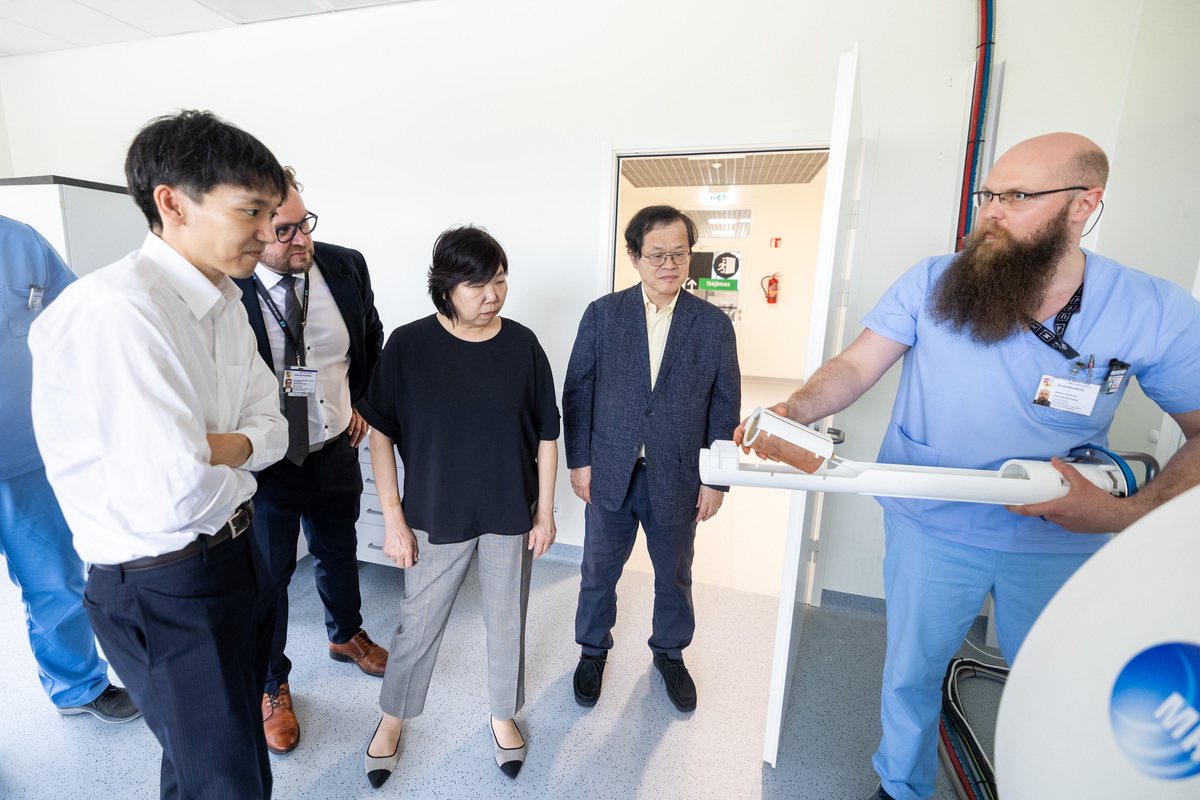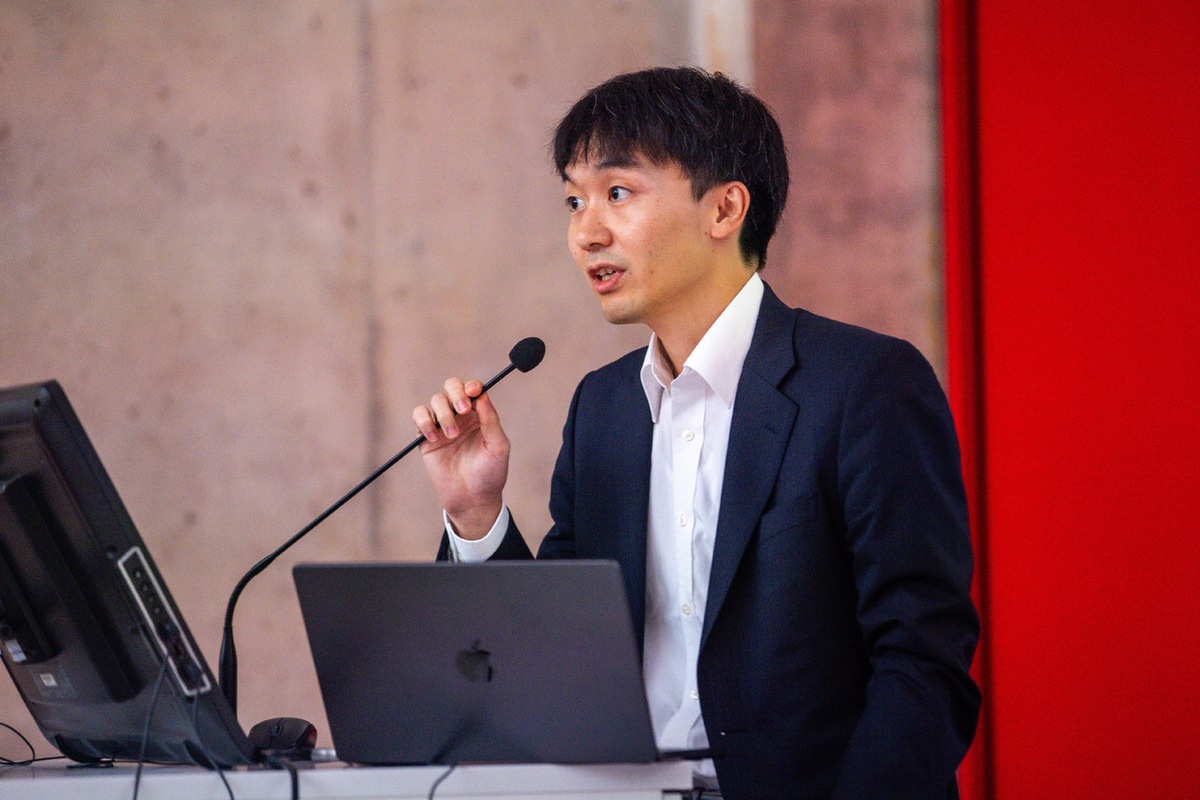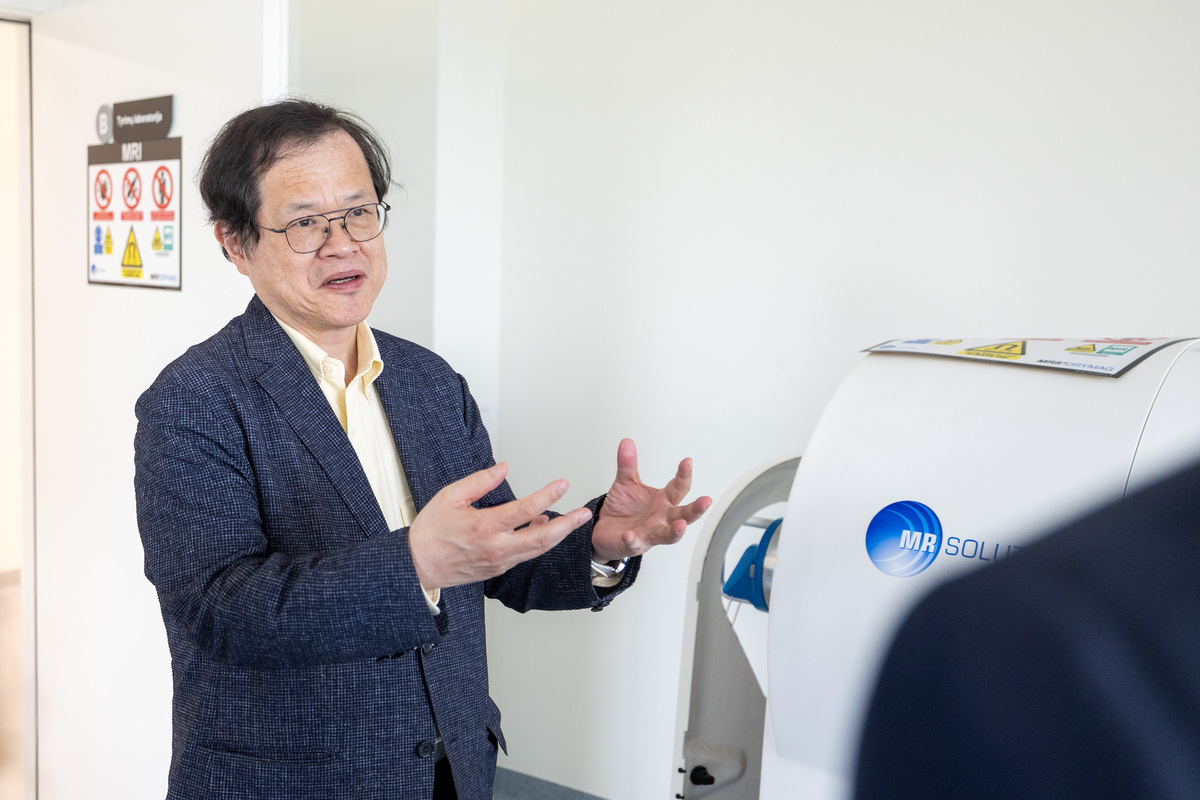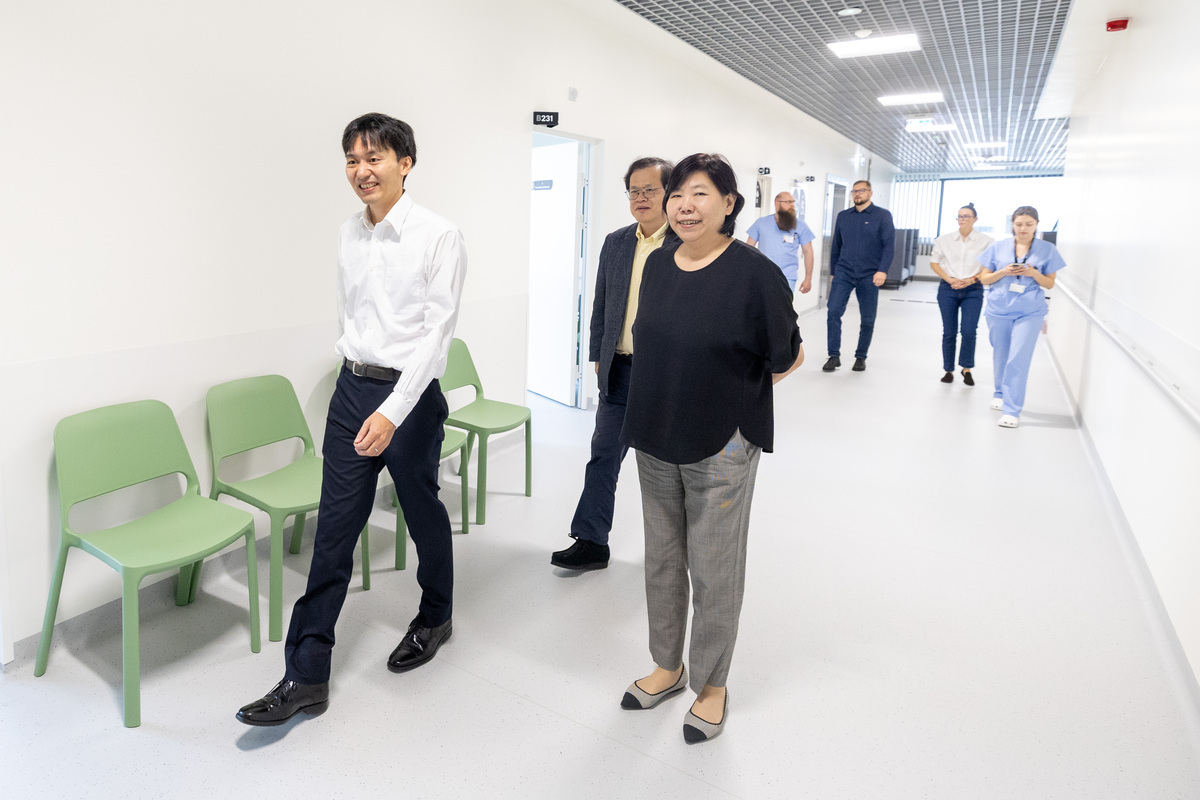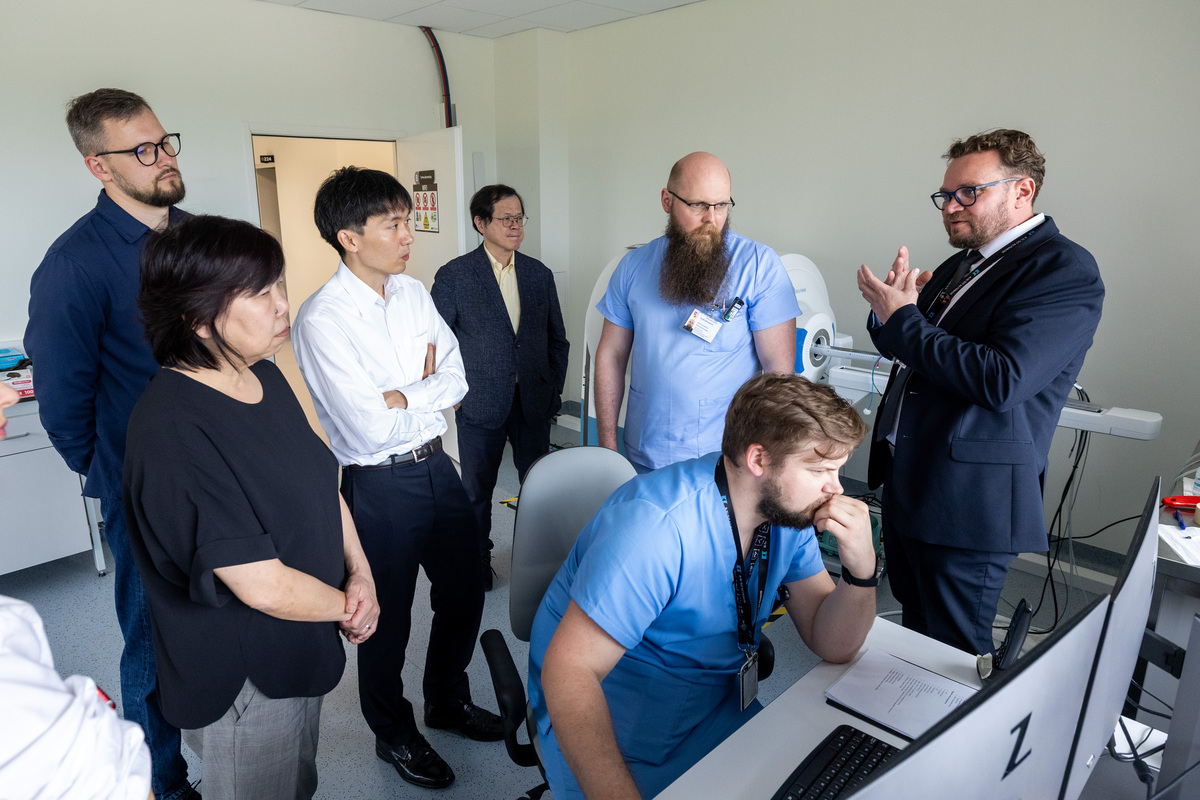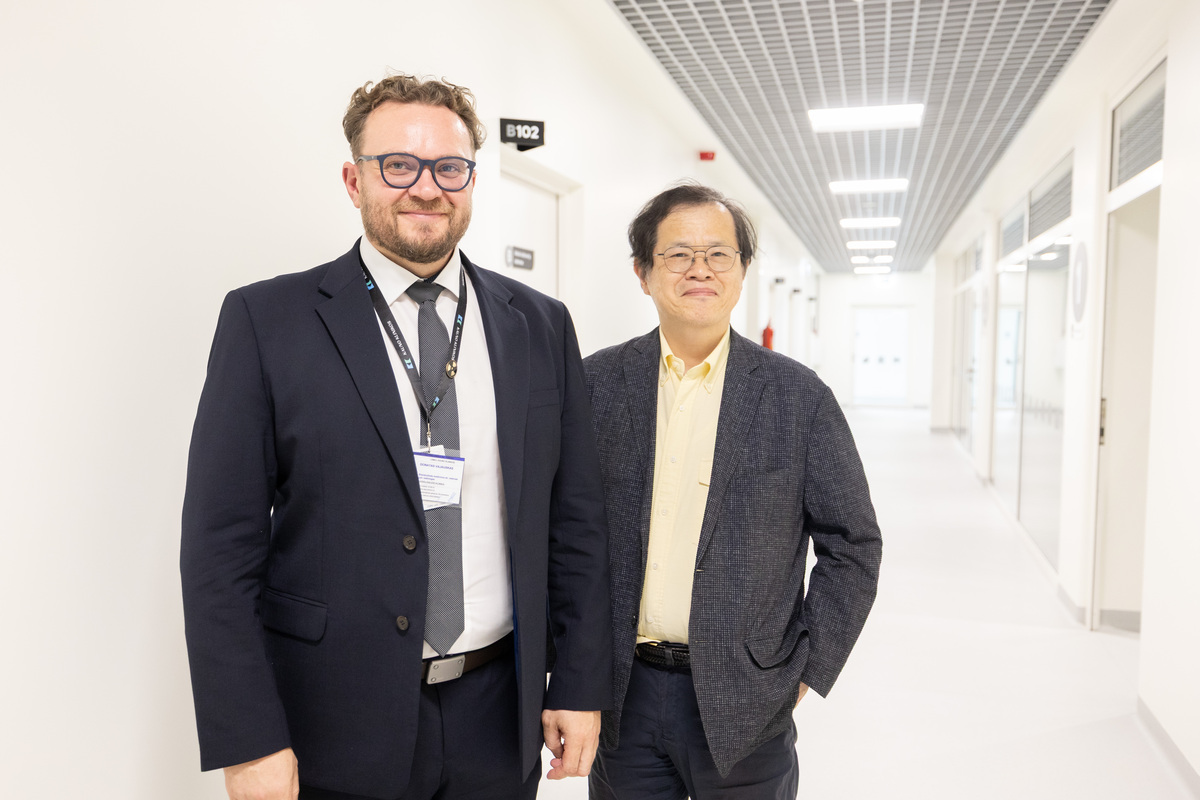Strategic Collaboration with Japanese Scientists Continues
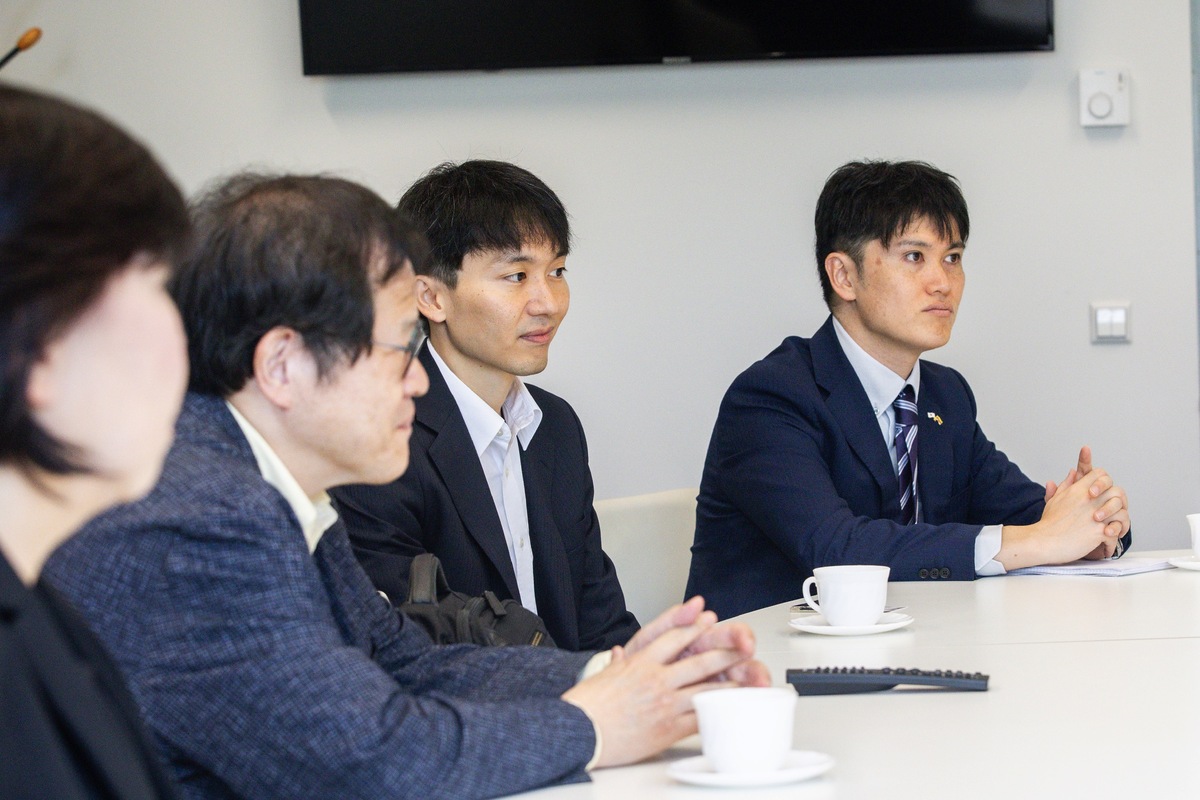
On 6 June, the Lithuanian University of Health Sciences (LSMU) and Hospital of Lithuanian University of Health Sciences Kauno klinikos welcomed a distinguished delegation of Japanese scientists: Professor Makoto Suematsu, Director of the Central Institute for Experimental Animals, along with his colleagues – Dr Erika Sasaki, an internationally recognised specialist in reproductive and developmental biology, and Dr Terumi Yurimoto, a researcher in laboratory animal science and veterinary medicine. This visit represents a significant milestone in the long-standing partnership in the field of biomedicine, strengthening the link between fundamental research and clinical practice while opening new possibilities for implementing global innovations across various medical disciplines.
Prof. Habil. Dr Renaldas Jurkevičius, General Director at Hospital of Lithuanian University of Health Sciences Kauno klinikos, highlighted that the enduring collaboration with Japanese scientists has resulted in numerous important projects that have significantly contributed to medical advancements at Kauno klinikos in Lithuania. “One of the key projects focused on research into rare and undiagnosed diseases, conducted in collaboration with the Centre for Medical Genetics at Keio University School of Medicine, then led by Professor Kenjiro Kosaki,” said Professor Jurkevičius. “We are delighted to continue our joint efforts in oncology, genetics, nuclear medicine, rare and undiagnosed diseases, neurology, and neurosurgery. Professor Suematsu has been a regular visitor to Kauno klinikos and the university over the past decade, and the most recent visit was crucial for shaping future collaboration and defining new future possibilities.”

During their visit, the Japanese scientists toured the Nuclear Medicine Research Centre, which houses the only cyclotron in the Baltic States, enabling advanced diagnostic capabilities and supporting the development of precision and personalised medicine. The discussions also covered the opportunities to leverage Kaunas klinikos infrastructure, innovations, and research expertise for further scientific development.
Professor Suematsu, a globally renowned scientist and former long-term head of the Japan Agency for Medical Research and Development (AMED), has actively fostered collaborative ties with Kauno klinikos for over a decade. His research interests include gas biology, metabolomics, and imaging of malignant tumour metabolism. In recognition of his exceptional contributions to strengthening Lithuanian-Japanese medical collaboration and raising Lithuania’s global profile, he was awarded the Cross of the Knight of the Order for Merits to Lithuania in 2018.
Particular interest in scientific research
The delegation also visited university departments, where Professor Suematsu expressed particular interest in LSMU’s neurology and ophthalmology research, especially advanced magnetic resonance imaging (MRI) and magnetic resonance spectroscopy (MRS) techniques. “We greatly value this collaboration with Japanese scientists, the exchange of new ideas, and access to technological perspectives. These discussions are immensely valuable to us,” said Professor Vaiva Leskauskaitė, LSMU Vice-Rector for Research, who welcomed the delegation.
Professor Suematsu praised the operations of the Kaunas Biobank, emphasising its personalised patient data collection practices. “You excel in gathering patient data. In Japan, we lack such efficient data-sharing between hospitals and research institutions due to the absence of a legal framework,” he noted.
He also highlighted the General Data Protection Regulation (GDPR), which underpins data protection in Europe. While the rules are stringent, he suggested that certain collaborative models between countries could be feasible, given Japan’s similar standards.
Japanese scientists’ experience and innovations in Alzheimer’s disease research
During their stay, the Japanese scientists delivered lectures to the LSMU and Kauno klinikos communities, presenting the latest breakthroughs in Alzheimer’s disease research. A seminar by Dr Erika Sasaki, titled “Creating Non-Human Primate Models of Alzheimer’s Disease Using Genome Editing,” attracted significant attention. Dr Sasaki is a world-leading expert in marmoset – small monkey – genetics and pioneered the creation of the first transgenic marmoset in 2009. She currently works with the research team in the development of advanced genetic disease models and pre-clinical research platforms for Alzheimer’s and regenerative medicine by collaborating with the research team and using genetically modified and immunodeficient marmosets.
“Marmosets are exceptionally well-suited for long-term observation – they age similarly to humans, develop age-related diseases, and exhibit complex social behaviour and communication skills. Even conditions like diabetes, which emerge with ageing, show parallels to human health,” remarked Dr Sasaki.
Meanwhile, Dr Terumi Yurimoto presented innovative non-invasive research methods for studying Alzheimer’s disease in marmoset models. He discussed transgenic marmosets with green fluorescent protein (GFP)-labelled cells and those carrying presenilin-1 (PSEN1) mutations – a genetic alteration linked to familial Alzheimer’s.
These models allow researchers to track disease progression and predict symptom onset by type and time. However, Dr Yurimoto stressed that each marmoset is unique, requiring consistent, long-term monitoring through diverse methods, from blood tests and behavioural assessments to imaging technologies like MRI, PET, and fundoscopy.
Dr Yurimoto also showcased innovative artificial intelligence (AI) solutions designed to enhance research precision and efficiency. “We’ve developed two systems: an automated behavioural analysis system for use in enclosures and non-invasive restraint methods enabling functional MRI scans in awake marmosets. These technologies facilitate long-term, animal-friendly studies that deepen our understanding of Alzheimer’s mechanisms,” he explained.
The steadily growing international cooperation and knowledge-sharing among scientists are contributing to remarkable progress in biomedicine. This visit marks another important step in the long-standing partnership between Kauno klinikos, LSMU, and Professor Suematsu – a collaboration that plays an important role in advancing and implementing globally developed innovations in practice.

